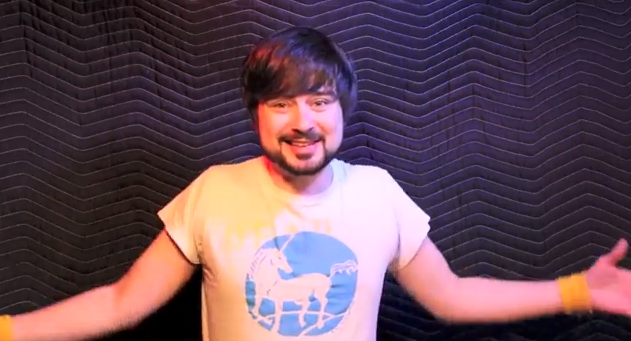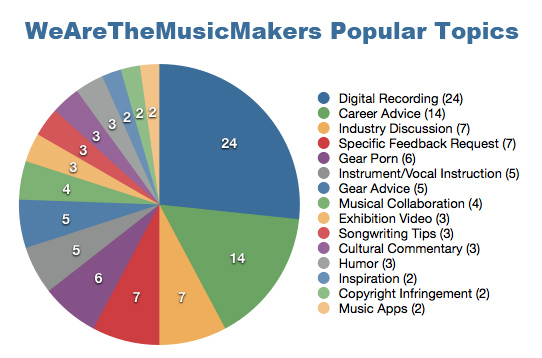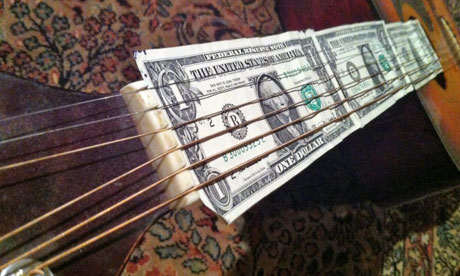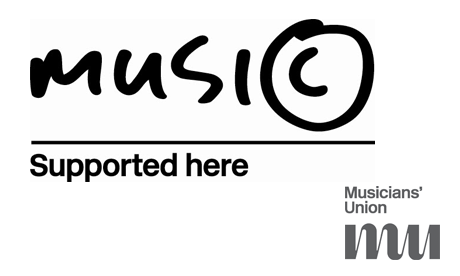The professional music career is in decline.
We could start with the RIAA’s debunked statistics painting a worst-case scenario, but that only tells one side of the story.
I’d rather look at Google, the “do no evil” company and thorn in the side of the few corporations that control the majority of the US music industry.
Search terms can’t be gamed and framed the way U.S. Bureau of Labor data can… Google Trends searches are like Shakira’s hips, they don’t lie. Let’s take a look at some common terms associated with aspiring music professionals:

The search volume for music career, learn music, music business, songwriting and music sales are all noticeably down since about a decade ago. Seeing these and other terms on a downward trend paints a clear picture of a future with less professional musicians.
Who’s to blame? Depends on who pays your bills. If you’re an old school music business person, you probably blame the content-devaluing “information wants to be free” tech sector. If you’re a new school musician, you probably have a chip on your shoulder dug deep by the exploitative, self-destructing record business which is ineptly responsible for the scorched earth you have to Mad Max a music career on these days.
Before we seek blame or solutions, let’s pause for a moment to consider what this means. Back to Google Trends. What about search terms concerned with more modern, everyday music practices?

Search volume for how to remix, mashup, garageband, how to record and how to make music are on their way up. There are more “musicians”, but less of them qualify for the “professional” distinction. You might call it the “amateurization” of music. More musicians, less music careers.
This is fun, let’s take another look at the “old way” of doing things:

Yup, interest is flagging in music publishing, music job, artist management, music copyright and music law.
So there must be a huge explosion of amateur musicianship, huh?

Hmmm… less people seem to want to go the traditional route of learning guitar and song composition through formal experience in training. This would seem to jive with less musicians going pro. Also jives with all the time those damn kids play video games on their mobile phones. They probably have a much more direct relationship to music creators, right?

Wow, crowd funding is exploding in popularity — there are clearly less careers these days built on exploitation and more facilitated through patronage. And lots of people seem to be picking up the habits of aspiring music professionals (Facebook pages, merch, albums). Perhaps we’re just in a slump, and there’s a digital music baby boom waiting to happen?
Of ourse, the situation is not as simple as I paint it here with the Google Trends graphs. For one, Google search terms are very broad in both scope and depth. If Kickstarter had an IPO, that might spike traffic, despite no correlating spike in user activity. Second, statistics can tell almost any story you want them to if you know how to frame them.
I’m not here to spew propaganda. I’m here to form solutions. Can this trend be turned around? Should we even care?
On the one hand, I believe we need more of a culture of entrepreneurship among musicians. The art/business divide is increasingly one of unsustainable, apathetic detachment from reality. It’s a cultural anachronism from a time when creative work found its utility in exploitation. Put simply, we musicians could use a little entrepreneurship with our sex, drugs and rock and roll. Everyone is creative nowadays — in a sense, creativity is getting more competitive. Those with the entrepreneurial skills have more and more opportunities for exposure than those skilled only in composition, performance or recording.
On the other hand, the music industry is growing, and while huge challenges remain (largely around copyright issues), it doesn’t seem as if the music market is in a downward trend. In fact, more people are listening to more music than ever before.
I think what’s happening is clear — we’re witnessing the dawn of a new creative class and a new type of creator-consumer.
We should continue to strive to figure out ways the old guard won’t lose all the value they invested in the music world these past few decades. But royalties — so-called “mailbox money” — are like a musician Social Security system, and just as unsustainable. Old rights owners (or their heirs) who no longer create anything are bogeying the music economy pie, leaving only tiny slices left for emerging, independent artists. This is why Spotify royalties are so low. I bet they love artists and would love to pay them, after all, they’re Swedish.
The purpose of copyright is to promote the production of creative works — how is that accomplished by giving the George Gershwin Estate millions of dollars? It may be a radical concept, but I think we need to divert some of this money into funding programs for the next generation of musicians. And we clearly need shorter copyright terms.
In any case, let’s push toward patronage and leverage the creative value in all of us to protect the independent class of musicians that represent our future. We may very well live in a world with more musicians and less professionals for a long time. But that doesn’t mean music is any better or worse off. Music is always awesome no matter how much we screw up the business side.
What is happening now is a redefinition of what a musician is (which is good because none of us can agree on a definition at the moment). We’re figuring out new ways (or rediscovering pre-phonograph ways) of doing business.
But as most fans and musicians would tell you, “Who cares about definitions and business models — turn up the music!”









